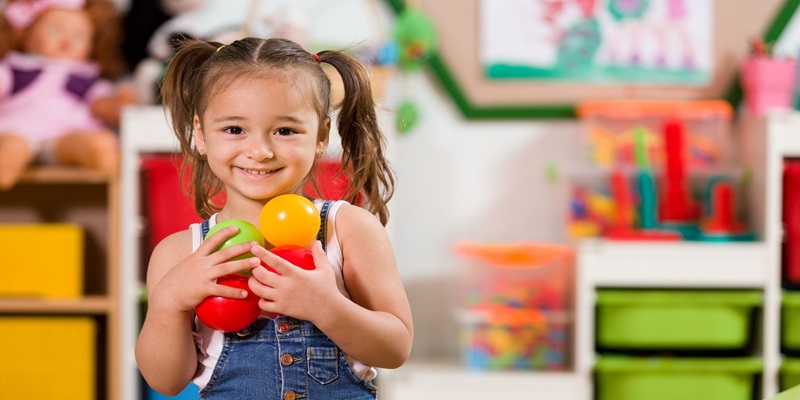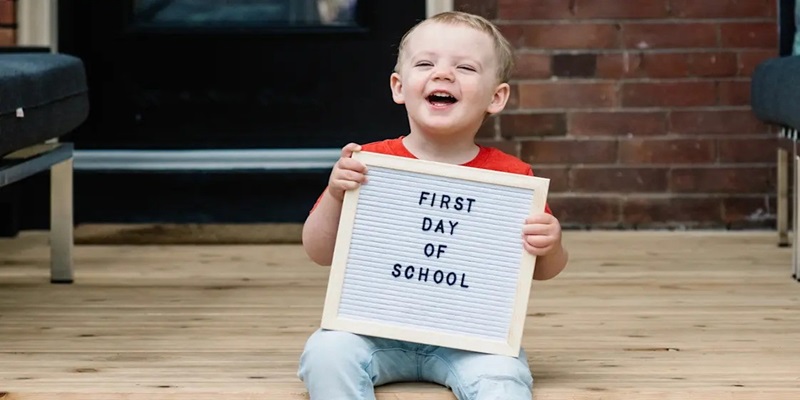Mother & baby
Preparing Your Toddler for Preschool: A Step-by-Step Guide
As your toddler approaches preschool age, you may have mixed excitement and apprehension. This is a significant milestone in your child’s educational career, and proper preparation is critical to ensuring this little one of yours faces this new experience with confidence.
As your toddler approaches preschool age, you may have mixed excitement and apprehension. This is a significant milestone in your child’s educational career, and proper preparation is critical to ensuring this little one of yours faces this new experience with confidence. You can help them build up ability and confidence by taking proactive measures. From developing routines to encouraging independence, there are several ways to ensure your toddler is ready.
Preparing Your Toddler Emotionally for the Preschool Transition

Nurturing Excitement and Confidence
Starting preschool is a significant milestone for the little ones. To make this transition smooth, focus on creating excitement and confidence in them. Describe preschool in positive terms-for example, explain all the fun things they will do and all the friends they will make there. You can read books together that involve stories of children starting school, showing how characters conquer their fears together. You can also role-play different school scenarios in your house, for instance, letting your child practice saying goodbye or doing circle time.
Addressing Fears and Anxieties
It’s normal for toddlers to be apprehensive about new situations. Let your child express his fears and validate his feelings. Offer reassurance by describing what he could expect from a typical preschool day. Visit the preschool before he starts so that he gets used to the classroom and teachers. This could help minimize anxiety.
Encouraging Independence
Preschool is the time to encourage independence- a concept probably new to your toddler. Start practicing self-help skills at home, like putting on shoes, using the toilet, or opening lunch packages. Praise him for attempting these skills and urge him to continue trying.
How to Get Your Toddler Ready for Preschool?
Institute a Daily Routine
Installing a routine is the secret to helping your toddler prepare for preschool. Make sure he wakes up and goes to bed simultaneously each day. Establish regular meal times and designate specific day periods for playing, learning, and resting. Such predictability gives your child a sense of security and lays the foundation for adjusting to a preschool routine.
Practice Self-Care Skills
Encourage your toddler to perfect the basic self-care activities that they will be required to perform in preschool. Make washing hands, using the bathroom, and putting on shoes part of your daily routine. Convert these activities into fun games or songs so your child is always excited about learning new things.
Introduce “Mock” Preschool Activities
Introduce preschool-like activities into your child’s home routine. Create time for circle time, singing songs, reading stories, or talking about the day. Introduce simple art projects, puzzles, and learning games that could resemble what they will be doing at preschool. Familiarity with these activities will help make your toddler’s transition to preschool easier.
Helping Your Toddler Develop the Skills That Will Help Them Succeed in Preschool

Encouraging Independence
Readiness for preschool is not all about academics. Encourage your child to learn to be independent. You can start with simple self-care abilities, such as teaching them how to put on their shoes or wash their hands. Encourage their efforts even if the results are not perfect. This helps them build confidence and self-reliance, which is important for success in preschool.
Nurturing Social Skills
Preschool is usually a child’s initial experience in a structured social environment. Help your toddler develop social abilities through playdates, story times at the library, or community events. Teach them to share, take turns, and express their feelings appropriately. Role-play will help them get used to what may be encountered in a more controlled environment.
Curiosity and Learning
Develop your toddler’s love of learning through daily activities. Read daily and point out the letters and words. Count objects when running errands or during play. Ask questions and encourage exploration to foster the innate curiosity that should carry them into preschool.
Establishing Routines
Preschool is all about structure, so begin establishing some at home. Develop a bedtime routine, consistent times to eat, and scheduled activities. Not only does this make your toddler feel secure, but he also becomes accustomed to the structure that comes with preschool. Parents should gradually extend periods of focused activity to help their child build up his attention span for the time spent in a classroom.
Choosing the Right Preschool Program for Your Toddler
Finding the right preschool for your child is essential to early childhood education. As you embark on this exciting journey, consider these factors to find the best fit for your child and your family.
Consider Teaching Philosophies
Research various preschool philosophies, including Montessori, Waldorf, and play-based learning. Each has its benefits, so take the time to consider which philosophy best fits your child’s personality and what works best with your family. Visit schools that interest you and observe classroom dynamics between teachers and children.
Consider Practical Considerations
On a practical level, location, schedule, and cost are the major areas of consideration. You want a convenient preschool and class hours that fit your schedule. As for price, remember that the most expensive isn’t always the best. Seek out a program that is of great value and meets your child’s needs.
Assess the Learning Environment
Your toddler needs a nourishing environment to thrive. When touring classrooms, note the stimulating materials and activities available, as well as both free and structured playtime. Also note the safety measures taken, overall cleanliness, and your general feeling about the visit. If a preschool feels right, it probably is.
Easing Your Toddler's Anxiety on the First Day of Preschool

First-day preschool jitters are natural for parents and toddlers alike. Let’s look at some tips to help parents ease their toddlers’ jitters and get them off on the right foot.
Develop a Calming Morning Routine
Well before preschool starts, develop a soothing morning routine with your toddler. Maybe it involves a special breakfast, picking out clothes, or reading a favorite story. By carrying this routine through to the big day, you can give your child a sense of comfort and continuity.
Pack Something from Home
Allow your toddler to bring one small comfort item from home, such as a family photo or a favorite stuffed animal. This concrete connection can provide reassurance throughout the day when your toddler is feeling insecure.
Show Up Early and Stay Calm
Plan to show up at preschool sometime in advance. This extra time allows you and your child to see this new world together without any pressure. Remember, your toddler will take cues from you, so be upbeat and relaxed.
Preparing Your Child for a Positive Preschool Experience
As you embark on this fascinating time with your toddler, remember: it’s all about preparation. If you follow these steps and keep open communication going between you and your child, you will have set up a pleasant transition to preschool. Approach this new chapter in your life with eagerness and patience. Your positive attitude will also make your little one confident and eager to learn. When approached correctly, preschool is an excellent avenue for growth, socialization, and learning.
How do you like this article?





 Latest Posts
Latest Posts





